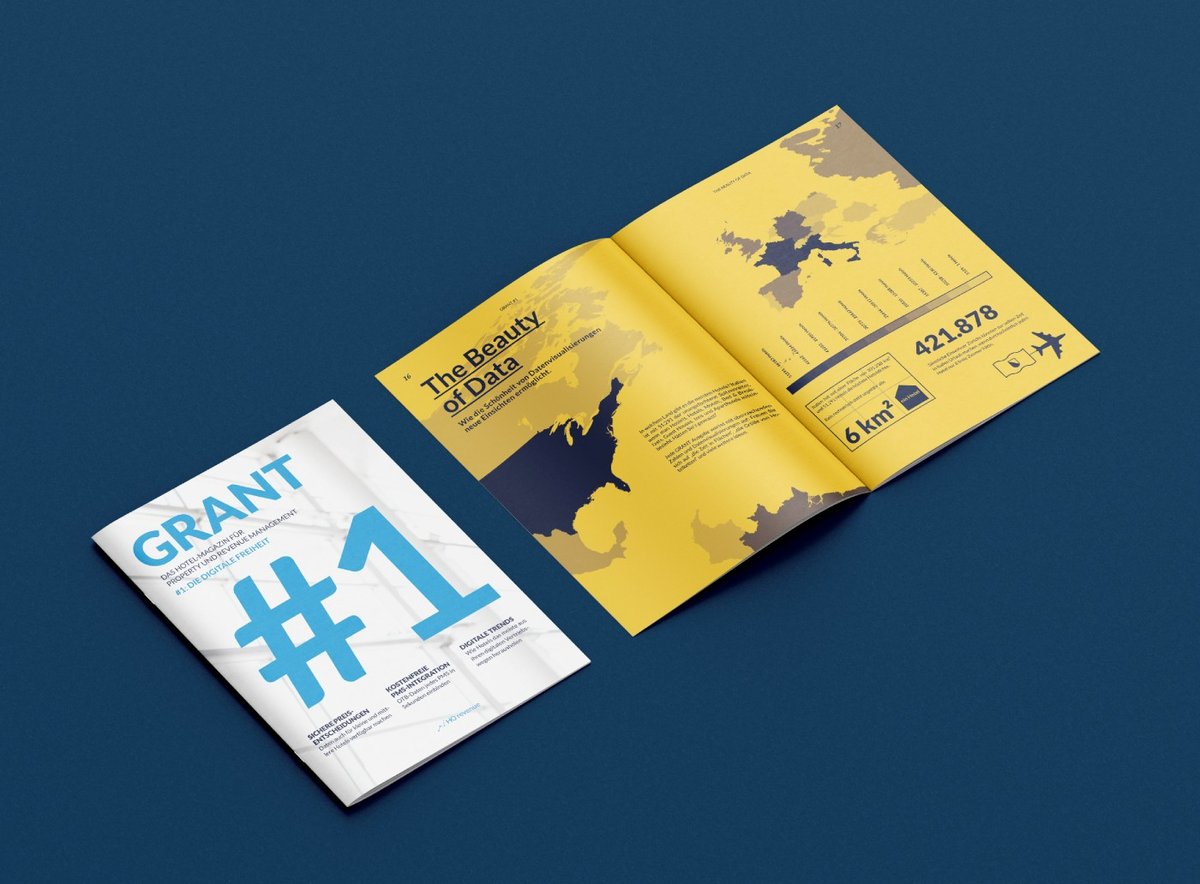On the Internet, many factors determine the attractiveness of one's own offer. Revenue managers always have an eye on their online sales channels. But how can hotels best evaluate the data from their digital sales platforms?
What kind of world would it be if a search query on Google led directly to the booking engine of the hotel's own website? If you could profit from the international visibility and the high reach of the OTAs without having to pay the high provisions of 15 to 50 percent? Unfortunately, the reality is different. Revenue managers are well advised to think their way out of their own little corner of the Internet. Before Covid-19, business and leisure guests would have had specific goals. But Covid is a game changer. The oversupply is huge, business guests stay away, and leisure guests don't compare within specific destinations, but instead stretch the search radius wide open with search queries like "coast" or "hiking in the mountains". The 'make a wish' of the potential guests creates a new competitive situation: Because hotels are no longer only in local competition – instead, the competition takes place on the big stage. The price all too easily becomes the figurehead for the service. For revenue managers, it is now important to always keep the big and whole picture in mind.
This is an excerpt from the recently published first issue of GRANT, the new hotel magazine specifically for property and revenue managers.
Download your digital copy here – or order the print edition for free!

Save valuable time in market monitoring
Business Intelligence is needed for the big turnover. With HQ revenue, you can easily turn the tables. Here are just three examples: They concern
- the look-to-book ratio,
- an accurate forecast, i.e. the predictability of your own business and
- the price-rating matrix.
1. Look-to-book: How high is my actual demand?
The actual demand of a hotel is not measured by the number of completed bookings, but rather – and this is important to understand – by the total page visits and booking requests, including cancelled sessions: If 100 page visits result in only 5 bookings, then you are losing on 95% of the demand.
It is important to understand the reasons for this loss. Business intelligence tools like HQ revenue provide the answers: They lie in the intelligent evaluation of all meta-information of all booking requests. In fact, booking demand is a very meaningful base factor for pricing decisions. The only catch is that the evaluation of such a mass of technical information cannot be done manually and remains hidden to many revenue managers if they do not have the right tool.
The ratio of "look-to-book" can be translated as "page visits to actual bookings", and it is an indispensable metric for revenue managers. It feeds into every pricing decision, up to date and in real time.
2. Forecast (FC): How high will my occupancy rate be?
Determining hotel occupancy solely on the basis of past performance gives an extremely blurred picture. This is because market demand is a key factor: To enable revenue managers to reliably identify the volume of demand for a specific key date, HQ revenue continuously analyzes demand for the respective area (city/area demand and for individually configurable macro markets).
The dynamic forecast calculation thus integrates (in addition to its own performance) all market developments. Events, political and social events, global vacations, the weather and seasonal conditions – how many potential guests will be in your city or vacation area? Machine Learning and Big Data make it possible. Future booking days can be estimated at any time because HQ revenue combines internal and external factors (taking into account comparable past performance) for each forecast.
3. Price Rating Matrix: How much am I worth
Guests of all ages use OTAs for booking and judge the quality of a hotel based on the available data. This includes price in particular. For hotels, undercutting each other's prices leads to a counterproductive price war. Counterproductive, because a price that is too low creates just as false an impression of the hotel offer as a price that is too high. "Is there something wrong with the hotel?" people would say in one case. "Am I getting enough for my money?" in the other.
It is essential to position your own hotel offer as precisely as possible within the competition – especially since the algorithms of the booking and search platforms flood the social media channels of your potential guests with the corresponding hotel offers depending on the price-performance ratio they are looking for. This means: If you position yourself correctly, you will be seen on social media in the first place!
"Why do some competitors get away with higher prices?"
Guests don't make decisions based on price alone, but on perceived value: This is where ratings come into play. TrustYou found that a good rating increases the likelihood of a booking by almost four times! So if the mix of quality and performance is right, you can't just – you should charge higher prices. But how do you find out exactly where your hotel stands within your comp set?
HQ revenue takes over the holistic market research and analysis. You receive a bird's eye view of the market in real time, whereby you can freely choose the flight altitude and depth of detail. You will always know how you are positioned compared to your comp set. Adjust your positioning through targeted price changes. Make informed pricing decisions to generate more revenue.
This is an excerpt from the recently published first issue of GRANT, the new hotel magazine specifically for property and revenue managers. Do you like to read more?
Pre-order the full magazine as PDF here – or order the print version for free to your analogue mailbox:
Share this
You May Also Like
These Related Stories

#TouristikHilft – Interview with Anna Heuer and Zeèv Rosenberg

Introducing: GRANT – The Hotel Magazine on Property and Revenue Management



No Comments Yet
Let us know what you think